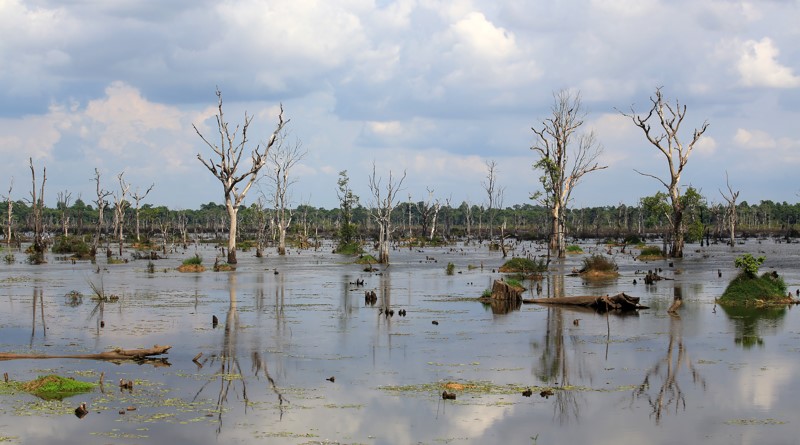‘Freshwater’s role in climate adaptation, mitigation needs more attention’

The role of water in climate mitigation is much greater than has previously been thought and mitigation measures can’t succeed without water, the first-ever summary of current research on the topic, conducted by the Stockholm-based SIWI (Stockholm International Water Institute) has said.
Water is the foundation of successful mitigation action, as Earth’s climate system and water cycle are deeply intertwined. Many of the transformations needed to reach climate emissions neutrality depend upon a reliable access to freshwater and also will have a significant impact on freshwater resources and/or ecosystems, the report – ‘The essential drop to reach Net-Zero: Unpacking Freshwater’s Role in Climate Change Mitigation’ – argued, stating that a new way of thinking about climate change can lead to more effective solutions.
The SIWI report explains how the journey towards climate security requires massive, cross-sectoral efforts in improved management of water. It focuses on climate mitigation measures that require or modify freshwater sources or freshwater-dependent social-ecological systems as well as climate mitigation options within the water and sanitation sector with up-scaling potential.
The report makes a strong case that to be viable, sustainable, and ultimately successful, climate mitigation strategies must be underpinned by a clear understanding of the requirements for, and impacts upon, freshwater resources. Insufficient recognition of climate–water interactions in greenhouse gas (GHG) reporting frameworks means that water is not included in climate mitigation planning and reporting to the extent necessary.
Currently, countries are not required to report on (potential) water-related mitigation action, except in the area of wastewater treatment. The historical lack of attention to the connection between freshwater and climate mitigation primarily stems from a knowledge gap: the interrelations between water
cycles, freshwater availability, freshwater limitations, and mitigation of GHG emissions have not yet been clearly articulated and recognized.
The report delivers five main messages:
- Climate mitigation measures depend on freshwater resources. Present and future freshwater availability needs to be accounted for in climate mitigation planning and action.
- Climate mitigation measures impact freshwater. Freshwater impacts – both positive and negative – need to be evaluated and included in climate mitigation planning and action.
- Water and sanitation management can reduce GHG emissions. Climate mitigation planning and action should include the substantial emission reduction potential in drinking water and sanitation services, and through the management and protection of freshwater resources.
- Nature-based Solutions to mitigate climate change can deliver multiple benefits for people and the environment. Priority should be given to measures
that can safeguard freshwater resources, sequester carbon, protect biodiversity, improve soil and water productivity, and ensure sustainable and resilient livelihoods. - Joint water and climate governance need to be coordinated and strengthened. Mainstreaming freshwater in all climate mitigation planning and action requires polycentric and inclusive governance arrangements that can facilitate integrated approaches.
Functioning freshwater systems are essential for climate mitigation through measures such as reforestation, restoration of degraded ecosystems, and bioenergy with carbon capture and storage (BECCS). Some potential climate solutions even risk reducing mitigation effects if plans fail to assess and minimize water risks.
Hydropower facilities with poor citing, design, and management, for example, can result in less power generation and greater emissions from impacted
reservoirs. This is particularly important as most mitigation measures worldwide have an impact on freshwater resources and ecosystems. Therefore, the
transformations of, for example, our food and energy systems must be accompanied by comprehensive analyses of water availability and impacts at local, regional, and global levels.
At the same time, the water sector itself offers untapped mitigation potential: climate smart water management, for instance, can significantly avoid
and reduce emissions of carbon, methane, and nitrous oxide, emanating from urban water and wastewater management, and mismanaged or drained wetlands.
Nevertheless, the critical role of freshwater in climate mitigation is often overlooked for a number of reasons.
“For governance systems and national implementation plans to succeed, freshwater needs to be put in its rightful place: at the heart of all efforts to adapt to, as well as to mitigate, climate change”, the report states.



